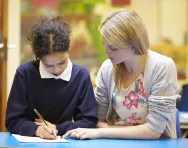Important update from TheSchoolRun
For the past 13 years, TheSchoolRun has been run by a small team of mums working from home, dedicated to providing quality educational resources to primary school parents. Unfortunately, rising supplier costs and falling revenue have made it impossible for us to continue operating, and we’ve had to make the difficult decision to close. The good news: We’ve arranged for another educational provider to take over many of our resources. These will be hosted on a new portal, where the content will be updated and expanded to support your child’s learning.
What this means for subscribers:
- Your subscription is still active, and for now, you can keep using the website as normal — just log in with your usual details to access all our articles and resources*.
- In a few months, all resources will move to the new portal. You’ll continue to have access there until your subscription ends. We’ll send you full details nearer the time.
- As a thank you for your support, we’ll also be sending you 16 primary school eBooks (worth £108.84) to download and keep.
A few changes to be aware of:
- The Learning Journey weekly email has ended, but your child’s plan will still be updated on your dashboard each Monday. Just log in to see the recommended worksheets.
- The 11+ weekly emails have now ended. We sent you all the remaining emails in the series at the end of March — please check your inbox (and spam folder) if you haven’t seen them. You can also follow the full programme here: 11+ Learning Journey.
If you have any questions, please contact us at [email protected]. Thank you for being part of our journey it’s been a privilege to support your family’s learning.
*If you need to reset your password, it will still work as usual. Please check your spam folder if the reset email doesn’t appear in your inbox.
How to help out at your child's school

Ever wondered what it would be like to be a fly on the wall in your child’s classroom? Well, offering your services as a parent helper is a great way to gain some insights into what actually goes on during the school day – and in some cases, could even pave the way for a school-based career.
Primary schools are generally very welcoming of parent volunteers, even if you don’t have any experience with children (other than your own, of course). So how can you get involved?


Boost Your Child's Learning Today!
- Start your child on a tailored learning programme
- Get weekly English & maths resources sent direct to your inbox
- Keep your child's learning on track
Volunteer roles within schools
There are many different ways in which parents can help in schools – on an ad hoc or regular basis. These include:
- Helping with literacy (typically listening to children read)
- Helping with numeracy
- Sharing your professional skills (for example, if you’re a doctor, you might go in to talk to a class whose topic is healthy living)
- Helping with classroom activities such as cookery
- Leading or helping to lead an after-school club like netball or chess
- Helping on school trips
- Helping with sporting events, music or drama productions
There are also more official ways to volunteer at your child’s school, for instance by joining the PTA or offering your services as a governor, although these won’t necessarily involve much (or any) direct work with children.
In addition, there are external initiatives that place volunteers in schools (not necessarily their own child’s), like the Beanstalk Charity and Reading Matters, which support children with literacy, and Code Club, which recruits volunteers to run after-school computer coding sessions.
How do schools select their helpers?
Schools are usually very keen to enlist parent helpers, especially if you’re able to commit to going into school regularly. Often, teachers will ask for people to express their interest in volunteering at the start of the school year, and will then allocate people to the positions that need filling. If, for instance, you’re available every Wednesday afternoon, you might be asked to become a regular reading helper. This may need to be agreed by the headteacher first.
Sometimes, there will be a call-out for people with particular skills to help out in school. There may be an appeal in the newsletter for people to come forward if they’re able to help children with a gardening project, for example.
Helpers for occasional activities like going on school trips are more likely to be chosen on a first come, first served basis, or by drawing names out of a hat. However, if the school knows that you’re generally available and are keen to be involved, they may approach you directly.
Will you be working with your own child?
Many parents volunteer to help in school as a way of finding out what their own child gets up to during the day, but bear in mind that you may not have much contact with them.
Children often behave differently when their own parents are in the classroom, whether by being clingy or showing off, which means that teachers may prefer helpers to work with other children instead. In fact, you may even be allocated to work with another class altogether. The same applies for school trips: it’s unlikely that your child will be put in the group that you’re supervising.
Do you need any background checks?
The issue of safety checks for school helpers is a grey area. Current policy states that volunteers don’t need any special checks if:
- They’re supervised by a person in ‘regulated activity’ (e.g. a teacher or teaching assistant)
- They’re supervised regularly and on a day-to-day basis
- The supervision is ‘reasonable in all circumstances to ensure the protection of children’.
In practice, schools can decide themselves whether parent helpers need any safeguarding checks, taking into account factors such as the age of the children you’re working with, how many children you’ll be working with, and whether you’ll be directly responsible for looking after them.
This tends to mean that if you’re helping on an occasional basis, such as lending a hand with a cooking activity or volunteering on a trip, you won’t need a background check. But if you’re helping regularly, for example by listening to children read on a weekly basis or leading an after-school club, the school is likely to ask you to complete a Disclosure and Barring Service (DBS) check. This should be organised by the school.
Turning volunteering into a career
Many parents help out in schools as a way of getting their foot in the door for any vacancies that might arise, and this can indeed be a good way into working in schools. Schools will often approach their regular volunteers about staff openings, particularly temporary or ad hoc ones, so if you’ve got a good reputation for helping in school and being readily available, it could work to your advantage.
There are also courses that you can take if you want to turn your parent helper role into a career. These range from short-term courses like the WEA’s Preparing for Helping in Schools programme, which equips parents who want to volunteer in schools, to accredited courses like the Supporting Teaching and Learning in Schools Level 2 qualifications and apprenticeships.
These qualifications aren’t mandatory for parent helpers, or even for prospective teaching assistants – many schools just stipulate that TAs and other paid support staff just have good GCSEs in English and maths – but with competition for school-based positions always fierce, they could help you stand out from the crowd.








